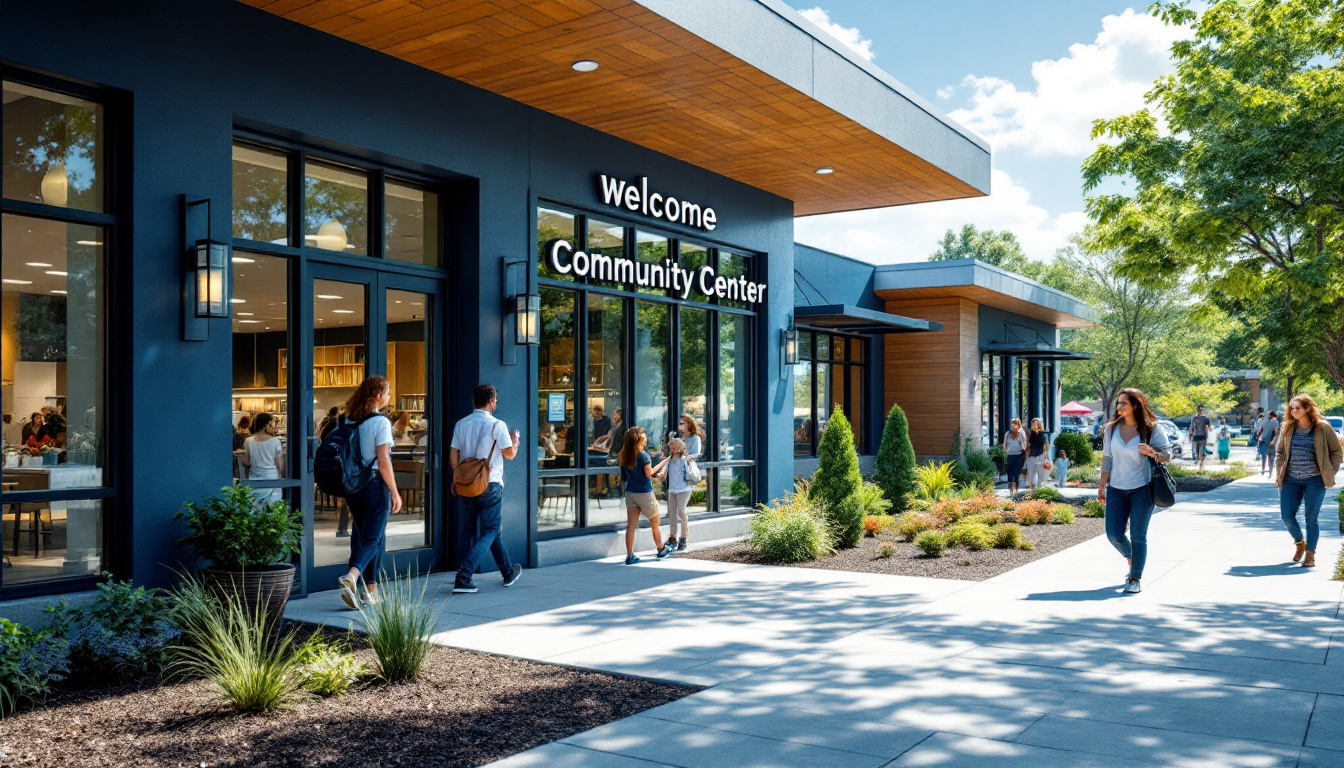
Introduction to Inclusive Employment and DDD's Role
In today’s evolving workforce, inclusive employment opportunities are essential for creating equitable, diverse, and productive workplaces. The Division of Developmental Disabilities (DDD) plays a pivotal role in supporting individuals with developmental disabilities to find meaningful, community-integrated jobs. This article explores how DDD and associated programs foster inclusive employment, emphasizing strategies, policies, partnerships, and innovative practices that break down barriers and embrace diversity.
Supportive Employment Services and Their Impact

What are supported employment programs and how do they support individuals with disabilities?
Supported employment programs are dedicated services designed to assist individuals with disabilities, especially those with significant disabilities, in obtaining and maintaining competitive, integrated employment in community settings. These programs are tailored to each person's unique strengths, preferences, and needs.
The support provided includes personalized job coaching, workplace accommodations, and employment strategies customized for the individual. These may involve on-the-job training, support in developing job-seeking skills, and ongoing coaching even after employment begins for up to 24 months or longer using natural supports or additional funding.
Partnerships are vital in these programs. Employers, community organizations, and government agencies work together to foster inclusive work environments. They help identify suitable job roles, adjust workplace environments, and ensure continuous support.
A core aim of supported employment is to promote social integration. Individuals are paid at or above minimum wages, work alongside coworkers without disabilities, and develop the skills necessary for long-term job stability. This approach not only enhances economic independence but also encourages community participation.
Overall, supported employment effectively reduces barriers to workforce entry for people with disabilities, fostering a sense of belonging, and promoting sustained employment and personal growth.
| Program Elements | Description | Additional Details |
|---|---|---|
| Personal Support | Job coaching, accommodations | Tailored support based on individual needs |
| Employer Partnerships | Collaboration with businesses | Customizing jobs and workplaces for inclusivity |
| Community Integration | Social participation | Long-term support and ongoing inclusion |
This comprehensive approach helps to create a more accessible job market where individuals with disabilities can thrive and achieve independence.
Inclusive Policies and Legal Frameworks Driving Change
 Legal mandates play a crucial role in promoting inclusive employment for people with disabilities. Laws such as Section 501 and Section 503 of the Rehabilitation Act require federal agencies and contractors to actively support disability representation in their workforce. These policies mandate that workplaces provide necessary accommodations and foster an environment of inclusion.
Legal mandates play a crucial role in promoting inclusive employment for people with disabilities. Laws such as Section 501 and Section 503 of the Rehabilitation Act require federal agencies and contractors to actively support disability representation in their workforce. These policies mandate that workplaces provide necessary accommodations and foster an environment of inclusion.
Beyond compliance, these laws offer incentives to employers, such as tax credits and preferences in federal contracting, encouraging them to recruit and retain workers with disabilities. For instance, federal contractors must meet specific disability inclusion goals, which can be supported through targeted outreach and workplace accommodations.
V(E)RA and other regulations specifically target employment within government programs. The Vietnam Era Veterans' Readjustment Assistance Act (VEVRAA) prioritizes providing employment opportunities for veterans with disabilities and aims to increase their representation in federal agencies.
These policies create a strong foundation for broader societal change by setting clear standards for nondiscrimination and accessible practices. Employers are often encouraged to ask candidates and employees to self-identify as persons with disabilities, which helps in tracking progress and implementing targeted support.
Legal frameworks not only promote compliance but also highlight the business advantages of diversity. Creating accessible and inclusive workplaces improves innovation, employee satisfaction, and retention. Establishing such standards helps normalize inclusive employment practices and encourages adoption across private sectors, ultimately fostering a more equitable workforce environment.
For more information, search for: "Disability employment laws and policies."
Organizational Initiatives and Industry Partnerships
Several prominent organizations exemplify how leading companies foster inclusive employment environments through dedicated programs and strategic models.
PRIDE Industries, in operation since 1966, has built a reputation for advocating the inclusion of people with disabilities in the workforce. They offer a wide range of services such as vocational training, job placement, on-the-job coaching, and skills development for independent living. Their partnerships with over 250 community employers enable them to create diverse, inclusive work environments.
Microsoft’s Supported Employment program stands out for its global reach and variety of roles. Leveraging partnerships with vendors and employment agencies, they employ individuals with intellectual and developmental disabilities across more than 30 job types, ranging from café ambassadors to laboratory technicians. Employees receive wages, benefits, and ongoing support from their vendor employers, fostering social integration and retention.
SAP, Dell, and Goldman Sachs are also notable leaders in this space. These organizations have established tailored inclusion initiatives, including supported employment, supported internships, and workplace accommodations, adhering to accreditation standards like CARF to ensure quality. Their efforts focus on creating accessible workplaces, providing training, and developing career pathways for employees with disabilities.
These organizations often operate under models that feature vocational training, on-the-job coaching, and supported employment initiatives. They prioritize ongoing support, fair compensation, and integration into mainstream workforces. Employing assessments, mentorship programs, and inclusive cultures, they demonstrate commitment to sustained employment for people with disabilities.
Furthermore, these companies recognize the importance of partnerships—not only with disability-focused agencies but also with broader community organizations—to expand outreach and improve employment outcomes. They actively advocate for policies that promote diversity and access, contributing to a more inclusive business environment.
| Organization | Model/Program Type | Support Strategies | Notable Achievements |
|---|---|---|---|
| PRIDE Industries | Vocational training & supported employment | Job coaching, partnerships | Over 250 employer partners, CARF accreditation |
| Microsoft | Supported employment & vendor partnerships | Fair wages, ongoing coaching | Employed in 30+ roles, high retention rates |
| SAP, Dell, Goldman Sachs | Customized inclusion initiatives | Accessibility, career development | Focus on sustainable, accessible, diverse workplaces |
These models show that through dedicated programs, strategic partnerships, and a focus on quality and support, industry leaders create inclusive employment opportunities that benefit both employees and organizations.
Resources and Frameworks Promoting Inclusivity

What are resources, best practices, and models that promote accessible and inclusive workplaces?
Creating truly accessible and inclusive workplaces involves implementing various resources and adopting effective models that accommodate diverse abilities. One prominent approach is Universal Design (UD), which aims to make environments, products, and communication methods usable by the widest range of people possible, regardless of their abilities.
Examples of UD in action include installing curb cuts at building entrances that benefit wheelchair users, bicyclists, and parents with strollers alike. In communication, providing forms, application materials, and testing formats in multiple formats—such as large print, audio, or easy-read versions—helps remove barriers for people with different literacy levels or sensory needs.
Technology also plays a vital role. Devices with accessibility features, like smartphones with voice recognition or simplified interfaces, provide crucial support, enabling participation for employees with sensory or cognitive challenges.
Complementing physical and technological adaptations are support tools like disability-focused job boards, such as AbilityJOBS, which connect job seekers with companies committed to inclusive employment practices. These platforms help expand opportunities for individuals with disabilities and ensure employers can find qualified candidates.
Best practices extend beyond physical adjustments. They include continuous employee training on disability awareness, implementing inclusive policies, and regularly evaluating workplace practices to adapt to changing needs. Leveraging support programs such as community centers and supported employment services ensures ongoing social integration and career development.
Altogether, these resources and models foster a workplace environment rooted in diversity and inclusion. They help organizations shift from superficial accommodations to genuine support systems where every employee can access opportunities, participate fully, and contribute meaningfully to the organizational success.
Community, Entrepreneurial Pathways, and Long-Term Engagement

How can entrepreneurship serve as an employment path for individuals with disabilities?
Encouraging entrepreneurship allows people with disabilities to leverage their unique skills, passions, and ideas to create independent income streams. This route offers flexibility, autonomy, and the ability to work in environments that best suit individual needs. Programs and initiatives like Best Buddies Jobs help individuals find work that aligns with their interests and talents, promoting self-sufficiency.
Entrepreneurship also supports economic inclusion by opening avenues beyond traditional employment. Individuals can start small businesses, freelance, or operate online ventures, reducing reliance on standard employment models. Such pathways not only boost confidence and community integration but also challenge employer biases, fostering broader acceptance.
How does the Division of Developmental Disabilities (DDD) support community inclusion?
The DDD has developed Community Inclusion Services focused on helping individuals participate meaningfully in society. These services promote social integration through activities such as volunteering, recreational events, educational programs, and cultural involvement. They enable persons with developmental disabilities to build friendships, learn new skills, and enjoy fulfilling life experiences.
Supporting employment is also a core component. DDD assists people in finding and maintaining jobs through tailored support, job coaching, and access to local employment networks. The goal is to embed individuals within their communities, transforming perceptions of disability and fostering a sense of belonging.
Can you give examples of supported community engagement and career pathways?
Supported pathways include supported employment programs like those operated by PRIDE Industries and supported by Microsoft, where individuals are employed in roles such as office assistants, warehouse technicians, or food service workers.
In community settings, individuals participate in volunteer work, recreational activities, and social clubs. For example, community-based activities facilitated by DDD offer opportunities for skill development and social interaction.
Some programs also focus on micro-entrepreneurship, supporting people to develop businesses that cater to local needs. These diverse pathways promote independence, community involvement, and economic stability.
What is the importance of partnerships, ongoing support, and community involvement?
Sustaining inclusive employment depends heavily on strong collaborations among organizations, government agencies, businesses, and community groups. Partnerships facilitate access to training, job opportunities, and resources such as assistive technology and transportation support.
Ongoing support like coaching, mentorship, and regular policy reviews ensures workplaces remain adaptable and inclusive. Programs like the Supported Employment Services deliver structured phases—from pre-placement assessments to long-term follow-up—ensuring employment success and retention.
Community involvement, through active participation and social engagement, enhances self-confidence and societal acceptance. Building relationships with local businesses and advocacy groups fosters an environment where diversity is valued and supported.
Through a combination of entrepreneurial initiatives, comprehensive community services, and durable partnerships, societies can promote sustained employment and inclusion for individuals with disabilities, enriching communities and strengthening social fabric.
Building Inclusive Futures Today
In fostering inclusive employment opportunities, the combined efforts of supportive services, equitable policies, industry collaborations, innovative resources, and community engagement are vital. The Division of Developmental Disabilities (DDD) exemplifies a comprehensive approach that not only helps individuals find jobs but also ensures they are valued and supported in diverse workplaces. Through continuous evaluation, innovative practices like Universal Design, and strategic partnerships, organizations can create sustainable, inclusive environments that benefit everyone — advocating for a future where inclusion is the norm, not the exception.
References
- How to Support Employees with Developmental Disabilities
- Exploring Inclusive Employment Opportunities for Adults with IDD
- Finding Inclusive Workplaces in California - NeuroNav
- DDD Supported Employment Services - SCARC
- Partnering with Businesses to Advance Disability Employment
- Universal Design | U.S. Department of Labor
- Inclusive employment
- Job Services for People with Disabilities - PRIDE Industries












